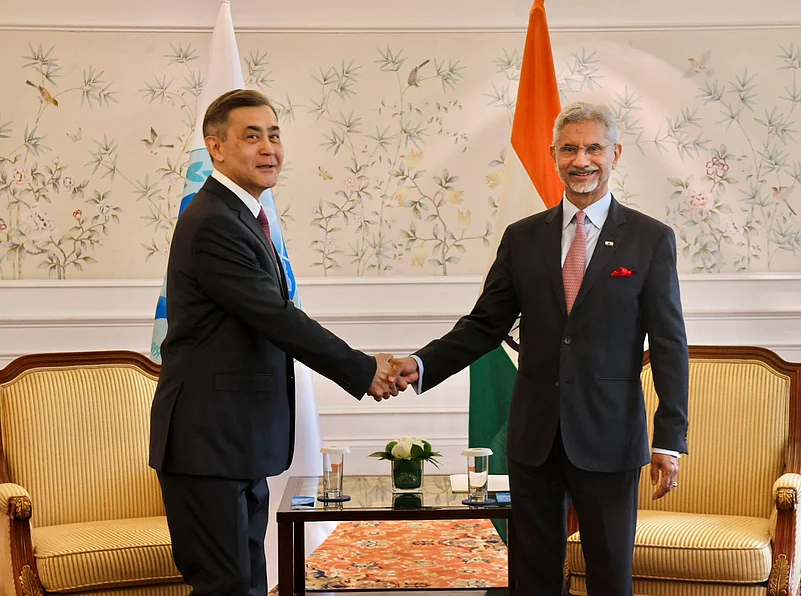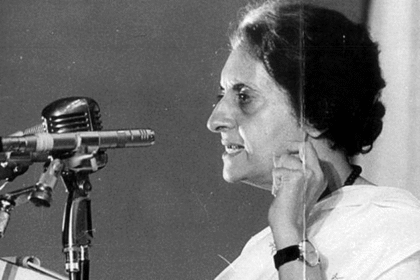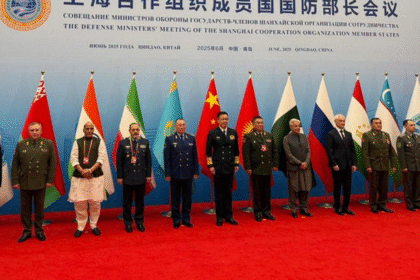Jaishankar’s China Visit Highlights Ongoing Border Standoff in Talks With Chinese Vice President
New Delhi: On his first visit to China in five years, external affairs Minister S. Jaishankar on July 14 (today) called for the “continued normalisation” of India-China relations, which have begun to thaw over the past nine months following the resolution of the protracted border standoff.
Jaishankar arrived in Beijing to attend the Shanghai Cooperation Organisation (SCO) Foreign Ministers’ Meeting, with several bilateral meetings scheduled on the sidelines. His first engagement was a delegation-level discussion with Chinese vice-president Han Zheng, ahead of a formal meeting with Chinese foreign minister Wang Yi.
In his opening remarks, Jaishankar said that ties had “been steadily improving” since the October 2024 meeting between prime minister Narendra Modi and president Xi Jinping in Kazan. He expressed confidence that his visit would help sustain this “positive trajectory”.
“We have marked, Excellency, the 75th anniversary of the establishment of our diplomatic relations. The resumption of the Kailash Mansarovar Yatra is also widely appreciated in India. Continued normalisation of our ties can produce mutually beneficial outcomes,” said Jaishankar
The Chinese readout stated India had conveyed its readiness to be guided by the leaders’ consensus and “maintain the momentum of the development” of bilateral ties, while enhancing coordination and communication through multilateral mechanisms.
Vice-president Han Zheng welcomed the positive developments since the Kazan meeting, which he described as marking the “restart” of China-India relations. Noting the two countries’ roles as major developing economies and key members of the Global South, Han described the partnership as essential for achieving “mutual achievements.
He added that “dancing with dragons and elephants” was the right choice for both sides, and called for further implementation of the consensus reached by their leaders. “The two sides must further… adhere to high-level leadership, steadily advance practical cooperation, respect each other’s concerns and promote the sustained, healthy and stable development of China-India relations,” said the Chinese foreign ministry readout.
Jaishankar, for his part, described the international landscape as “very complex”, and underscored the need for open exchanges between the two neighbours and major economies.
He also said that India supports China’s presidency of the Shanghai Cooperation Organisation (SCO). The Indian prime minister is likely to visit China later this year to take part in the SCO leaders’ summit.
Modi and Xi had last met in Russia on the sidelines of the 2024 BRICS summit, which had marked the resumption of high-level engagement after more than four years of strained ties, stemming from the border incursions in April-May 2020 and the deadly Galwan Valley clash that followed in June.
Since the resolution of the military standoff in October 2024, both sides have engaged more frequently at high levels. While recent statements suggest both New Delhi and Beijing are looking to stabilise relations, core differences persist.
These underlying tensions were highlighted in the aftermath of the four-day military clash between India and Pakistan earlier this year, when Indian military officials alleged that China had provided real-time defence support to Pakistan during the conflict.
Verbal rhetoric, especially from China, has also flared up over the question of the Dalai Lama’s succession. After the Tibetan spiritual leader indicated plans to identify his successor, Beijing asserted that any reincarnation would require its approval. Union minister Kiren Rijiju initially voiced support for the Dalai Lama’s stance before backtracking, calling it a personal opinion. The Indian government later said it had “no position” on the matter.
Despite the clarification, the issue continued to draw attention in Indian public discourse. On July 13,
Chinese embassy spokesperson Yu Jing responded sharply, calling Tibet “a thorn in China-India relations and a burden for India”. In a post on X, she warned that “playing the ‘Xizang card’ will definitely end up shooting oneself in the foot.”
Also Read: Concentration Camp Plan in Rafah Condemned by Israeli Leaders Lapid and Olmert








